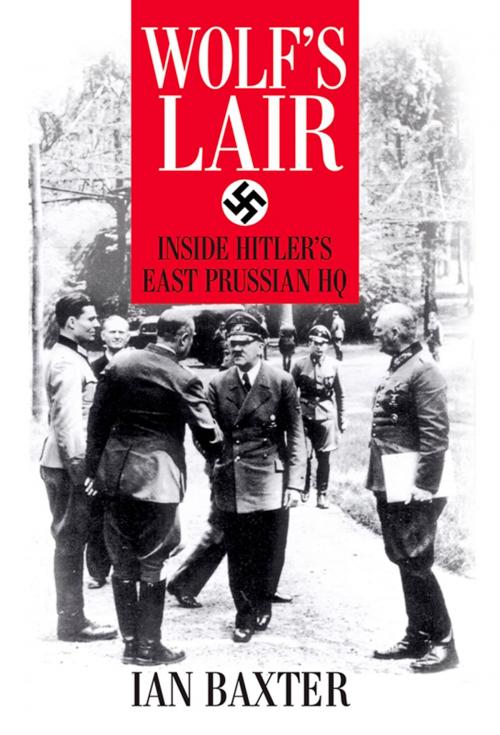| Author: | Ian Baxter | ISBN: | 9780750979337 |
| Publisher: | The History Press | Publication: | July 22, 2016 |
| Imprint: | The History Press | Language: | English |
| Author: | Ian Baxter |
| ISBN: | 9780750979337 |
| Publisher: | The History Press |
| Publication: | July 22, 2016 |
| Imprint: | The History Press |
| Language: | English |
The Wolf’s Lair was the most important German command post building during World War II. Orders sent from these secret headquarters would play a massive part in the outcome of the war. Baxter not only utilizes published works, unpublished records, military documents, and archives on the subject, but also digs deep into the contemporary writings of Hitler’s closest personal staff, seeking to disentangle the truth through letters written by wives, friends, adjutants, private secretaries, physicians, and of course his military staff. Baxter extensively examines life within the Führerhauptquartiere, where Hilter planned and gossiped with his associates. However, as defeat loomed, Hitler surrounded himself not with his intimate circle of friends, but what he considered were illiterate soldiers. Baxter shows how Hitler’s contempt for his war staff grew, and describes, during the onset of the traumatic German military reverses in Russia, how Hitler tried to infuse determination into his generals and friends, despite his rapid deterioration in health.
The Wolf’s Lair was the most important German command post building during World War II. Orders sent from these secret headquarters would play a massive part in the outcome of the war. Baxter not only utilizes published works, unpublished records, military documents, and archives on the subject, but also digs deep into the contemporary writings of Hitler’s closest personal staff, seeking to disentangle the truth through letters written by wives, friends, adjutants, private secretaries, physicians, and of course his military staff. Baxter extensively examines life within the Führerhauptquartiere, where Hilter planned and gossiped with his associates. However, as defeat loomed, Hitler surrounded himself not with his intimate circle of friends, but what he considered were illiterate soldiers. Baxter shows how Hitler’s contempt for his war staff grew, and describes, during the onset of the traumatic German military reverses in Russia, how Hitler tried to infuse determination into his generals and friends, despite his rapid deterioration in health.















